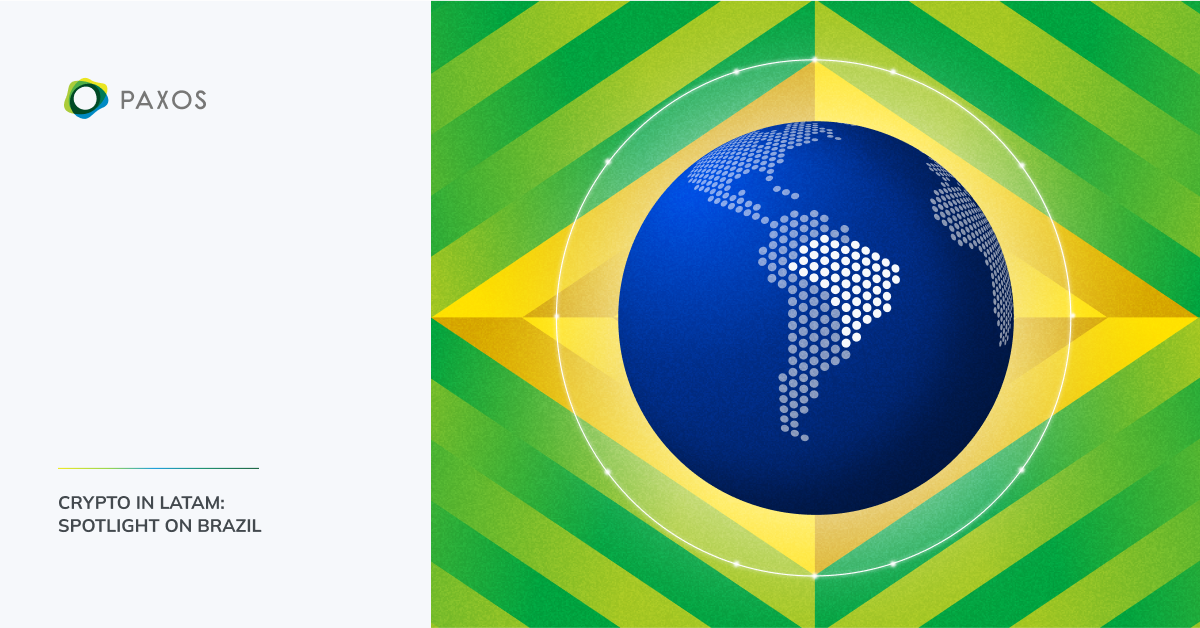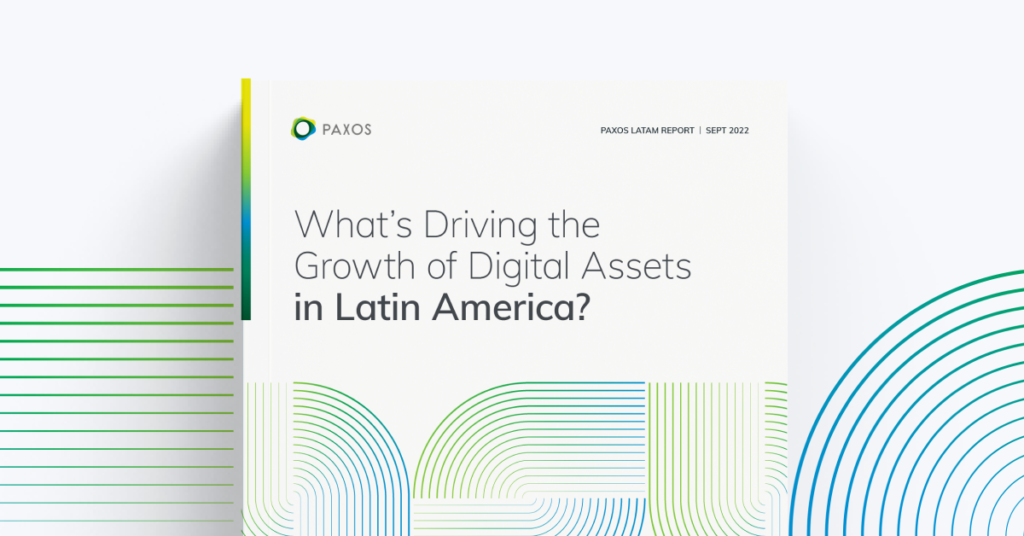
Brazilian soccer legend Pele once said, “Success is no accident.” He was referring to success on the soccer field, of course, and to the arduous, strategic and sacrifice-laden work that goes into winning a World Cup – which he did three times during his illustrious career. While Brazil’s past achievements on the soccer field are commendable, they’ve been equally successful in driving digital and financial inclusion. Specifically, crypto has been an area of enormous growth in Brazil – and that is no accident.
As global crypto markets encounter significant turbulence and many participants continue to feel the ripple effects of recent events, it’s helpful to gain a broader perspective and note that some regions are seeing crypto continuing to thrive, mainly due to a shared public and private commitment behind it.
In Brazil, prominent business and legislative leaders believe recent market events will help push regulatory legislation back to the top of the country’s priority list, which has reinvigorated a population poised to embrace crypto.
Brazil’s path to crypto adoption has been arduous and strategic, but it has certainly paid off. Crypto has brought unprecedented financial access to millions of consumers and small businesses, giving them a more accessible way to save, spend, and protect their money. It has also satisfied the appetite of crypto enthusiasts who appreciate the innovative ways crypto can be used, from payments to gaming to digital commerce.
Financial inclusion key driver of institutional adoption
There are, on average, eight Brazilian cryptocurrency holders for every Brazilian citizen invested in the stock market. And while many Brazilians currently use crypto as a store of value rather than as a medium of exchange, multiple use cases and long-term potential drive the overall adoption of cryptocurrency in Brazil.
One important factor is access. Allowing individuals in all areas of the country to do their banking on a cellphone increases financial inclusion for a country with 34 million underbanked citizens.
Digital financial services are appealing to millions of Brazilians. This surge in demand has only increased Brazil’s appetite for fintech products and services such as neobanks and digital wallets – which ultimately creates a cyclical demand for more crypto access.
These innovations have given many Brazilians seamless banking experiences for what were once hard-to-get financial products and services. Digital currencies, for example, can now be bought, held, sold and transferred directly via digital wallets, neobanks and more. Additionally, traditional financial institutions are looking to leverage digital currencies to engage, retain and strengthen the value proposition their users are demanding.
With retail interests beckoning access to crypto, many of the country’s prominent market participants were quick to get involved. Thomaz Fortes, the crypto lead at Nubank, one of the world’s largest digital banking platforms, recently commented that in Brazil, “The retail growth in the number of users in crypto has been much faster than in the equities market.” This type of engagement prompted Nubank to launch a crypto trading platform in 2022 powered by Paxos.
Collectively, platforms like Nubank, PicPay, and Mercado Libre continue to play a pivotal role in fueling fintech and crypto adoption among Brazil’s 220 million people.
Brazil’s public & private partnerships
A second crucial factor critical to Brazil’s adoption rate is the public sector’s level of engagement and leadership. For example, the Central Bank of Brazil (BACEN) has developed and executed an innovative agenda known as Agenda BC#, aimed at embracing innovation to drive greater transparency, inclusion and competition. BACEN has been proactive in exploring digital currency and blockchain technology as a means to “tokenize value,” which helps improve the efficiency of specific payment flows and enhances the utility of the Brazilian Real. BACEN’s digital Real project (their CBDC) is a critical component of their innovative agenda, alongside other initiatives like open finance.
Nothing has exemplified the public sector’s digital leadership more than PIX – Brazil’s real-time payment system. Free of charge for individuals, PIX has taken Brazil by storm and, less than two years after its launch, is used by approximately 75% of Brazilian adults. It’s been the most important catalyst in driving digital inclusion and has served as a prime example for banks looking to digitize cash.
Public support for crypto in Brazil is deepening its roots throughout the economy, with the collection of federal taxes on crypto gains (since 2016) and income tax on capital gains derived from the use of cryptocurrencies. Brazilians hope the positive impacts of tax revenues will inspire more public/private engagements.
Brazil – hotbed of crypto innovation
Neighboring LatAm countries are emulating Brazil’s public sector leadership, helping secure Brazil’s position as one of the world’s most innovative FinTech markets. The country’s public sector entities fulfill their foundational duties of consumer protection and setting fiscal policy with a laser-focused innovation agenda bringing more trust to the marketplace.
In one recent survey, Brazil continued to hold a key position as one of the world’s fastest-growing digital currency markets, ranking 7th in an overall crypto adoption index. There’s significant room for growth in a country where an estimated 16 million people own crypto and where over 12,000 companies hold crypto on their balance sheets (a record as of October 2022).
To achieve that growth, however, compliance and utility are fundamental – and Brazil can enable both. The adoption of digital currency technologies will continue being driven on the back of public-private sector partnerships that aim to develop standards to ensure these technologies are managed responsibly.
In Brazil, we find a market seeking to drive blockchain-enabled financial services innovation in a compliant and regulated manner. Brazil’s also capable of building utility with offerings that range from intra-border payments to providing a store of value to creating new customer loyalty programs.
Brazil’s crypto assets are not yet regulated, but they could soon be. The Brazilian Securities and Exchange Commission (CVM) recently released guidance on crypto-based securities while acknowledging the need for more regulation. CVM’s guidance will likely prompt further discussions and perhaps legislation to offer more consumer protections.
With talk of regulation on the rise, perhaps fueling Brazil’s confidence in crypto, Nubank announced this past October that it plans to release a new token next year in Brazil, Colombia and Mexico. The token – called Nucoin – will be available for Nubank’s 70 million users in the first half of 2023 and will be distributed freely and used to offer discounts and perks. It’s bringing that utility to digital currencies and blockchain that will continue to inspire crypto innovations in Brazil.
Want to learn more about what’s driving crypto adoption in Latin America? Access our free whitepaper.

